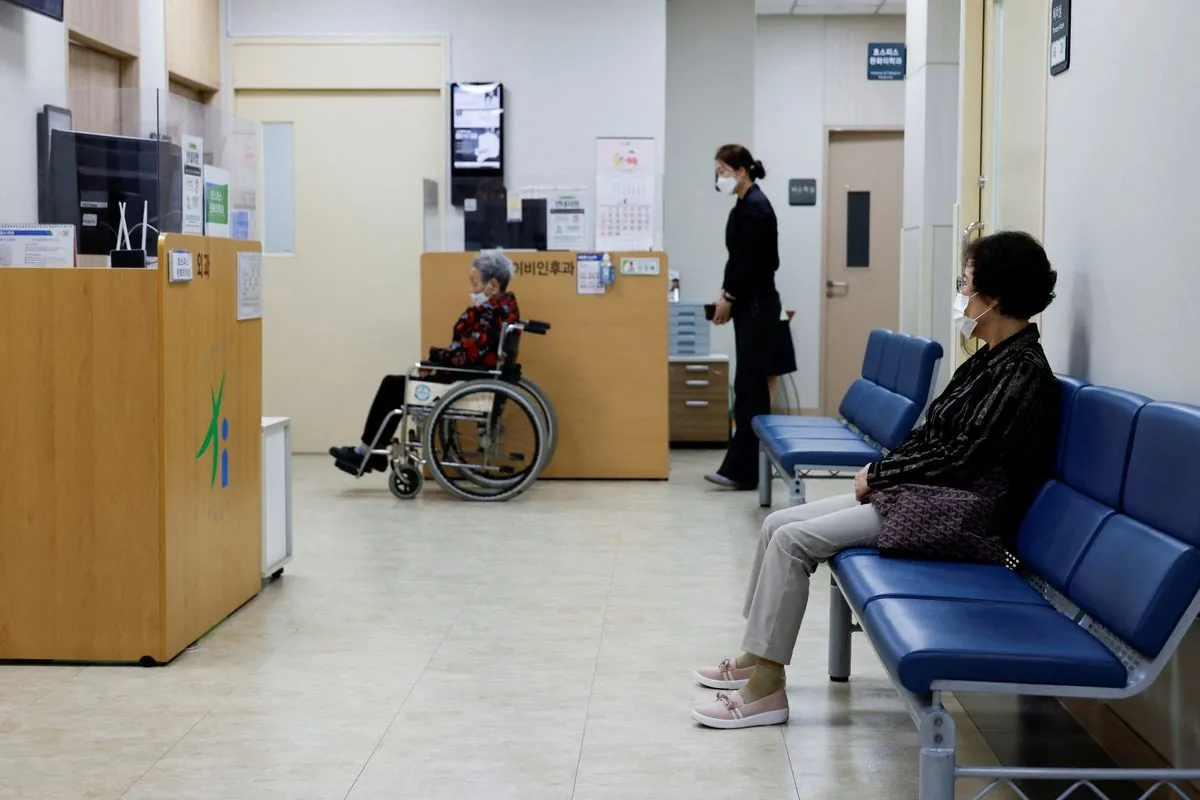South Korea Boosts Healthcare Funding Amid Ongoing Doctor Protests
South Korea allocates 10 trillion won to increase fees for treating severe illnesses, aiming to incentivize major hospitals amid a prolonged trainee doctors' walkout that has strained the healthcare system.

South Korea's healthcare system, renowned for its universal coverage and high-quality care, is facing significant challenges. The government has announced a substantial financial injection to address ongoing issues stemming from a prolonged protest by trainee doctors.
Over the next three years, 10 trillion won ($7.59 billion) from health insurance funds will be allocated to increase fees for doctors treating severe illnesses. This move comes as part of a broader strategy to alleviate the strain on the healthcare system caused by a walkout of young medical professionals that began in February 2024.
Kim Seung-taek, the Health Minister, stated, "This initiative aims to incentivize major general hospitals to focus more on treating severe, emergency, or rare diseases." The plan includes a 50% increase in fees for intensive care units and surgical procedures for critical conditions such as cancer.

The government's goal is to gradually reduce dependence on trainee doctors, allowing them to concentrate on their education. This shift is expected to increase the proportion of severe illness treatments at major hospitals from 50% to 70%.
South Korea's healthcare system, while highly ranked globally, has been grappling with several challenges:
- Low doctor-to-population ratio compared to OECD averages
- Shortage of medical professionals in rural areas
- High hospital bed occupancy rates
- Lengthy average hospital stays
The ongoing protest, which involves thousands of interns and resident doctors, was triggered by government plans to increase medical student numbers by 2,000 annually. This proposal aimed to address projected severe doctor shortages in the future.
As a result of the walkout, hospitals have had to:
- Turn away patients from emergency rooms
- Reduce operating hours
- Increase workload for existing doctors
To mitigate these issues, the government has implemented several measures:
- Deploying military doctors to assist in hospital emergency rooms
- Urging the public to avoid emergency rooms for non-severe symptoms
- Investing in telemedicine services to improve healthcare access
While South Korea boasts one of the world's lowest infant mortality rates and high cancer screening rates, it also faces challenges such as:
- High rates of antibiotic prescriptions
- Significant out-of-pocket healthcare expenses
- Mental health care provision issues
- High suicide rates, particularly among the elderly
The current healthcare reform efforts are part of a broader strategy to address these challenges and prepare for the needs of South Korea's rapidly aging population. As the country continues to invest heavily in medical technology and research, the government hopes these measures will help maintain its position as a global leader in healthcare provision.
"Our goal is to create a more resilient and efficient healthcare system that can meet the evolving needs of our population while ensuring the highest quality of care for all citizens."
As South Korea navigates these complex healthcare challenges, the success of these reforms will be crucial in shaping the future of its medical landscape and ensuring the well-being of its population.


































